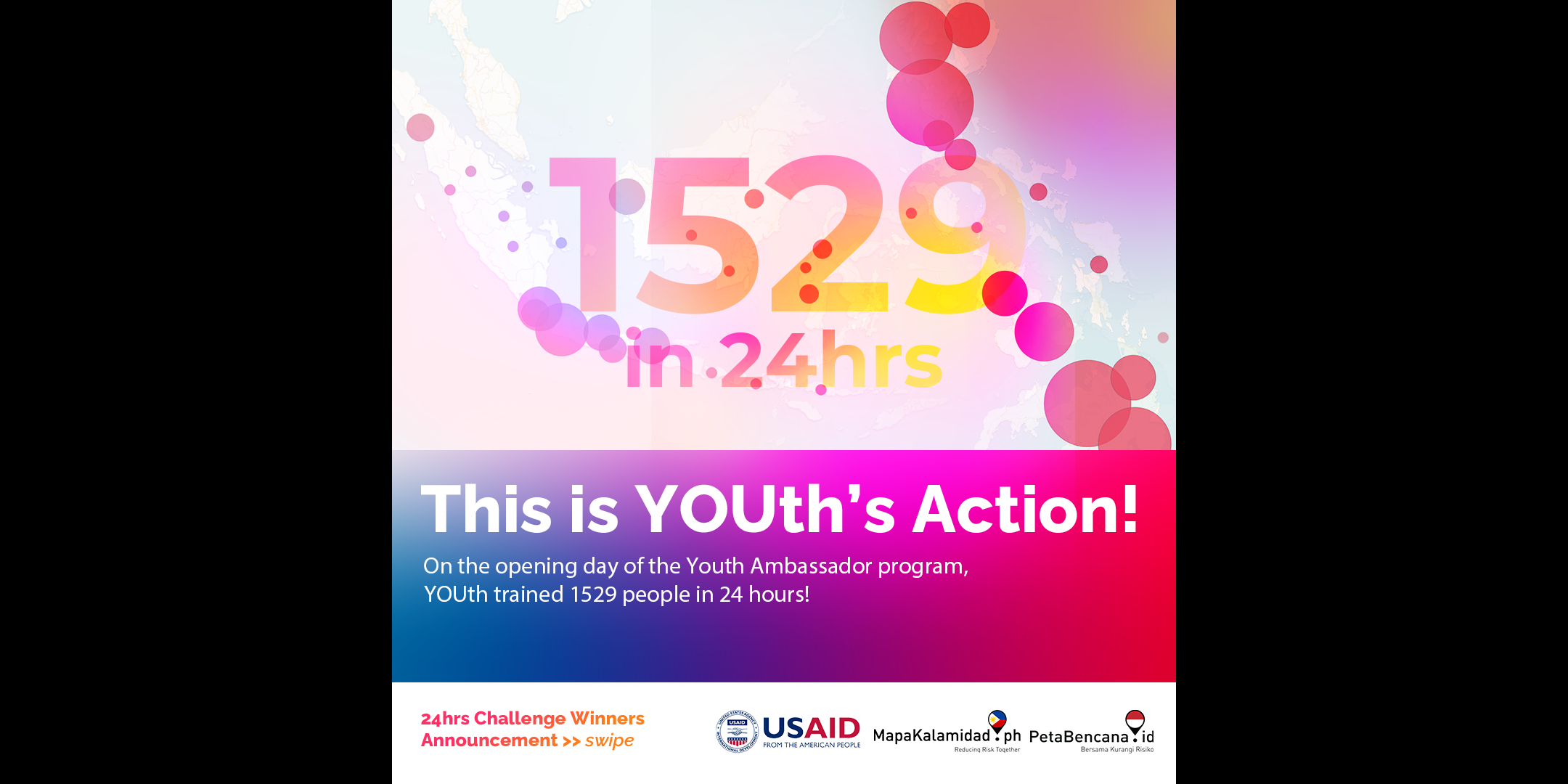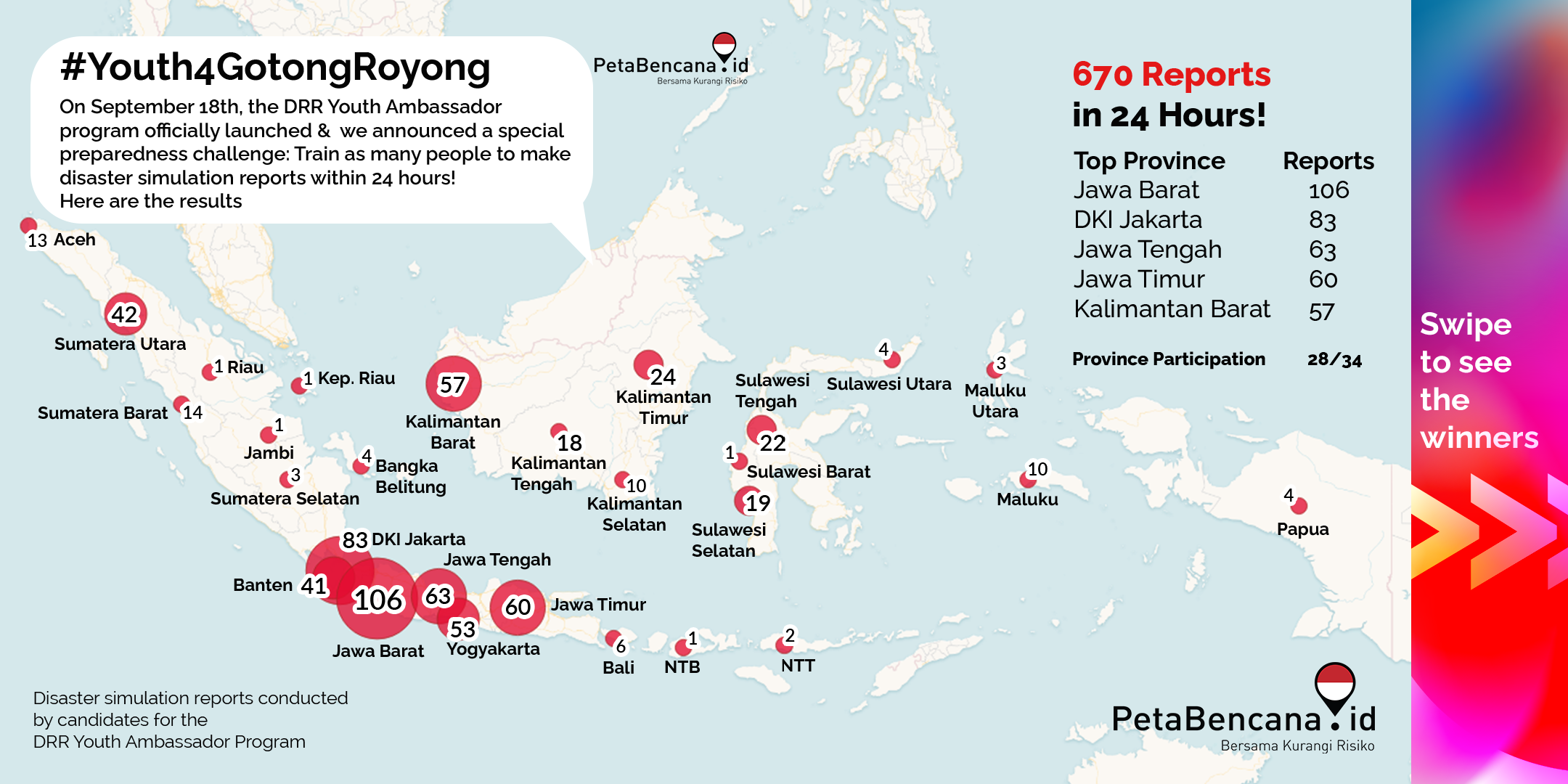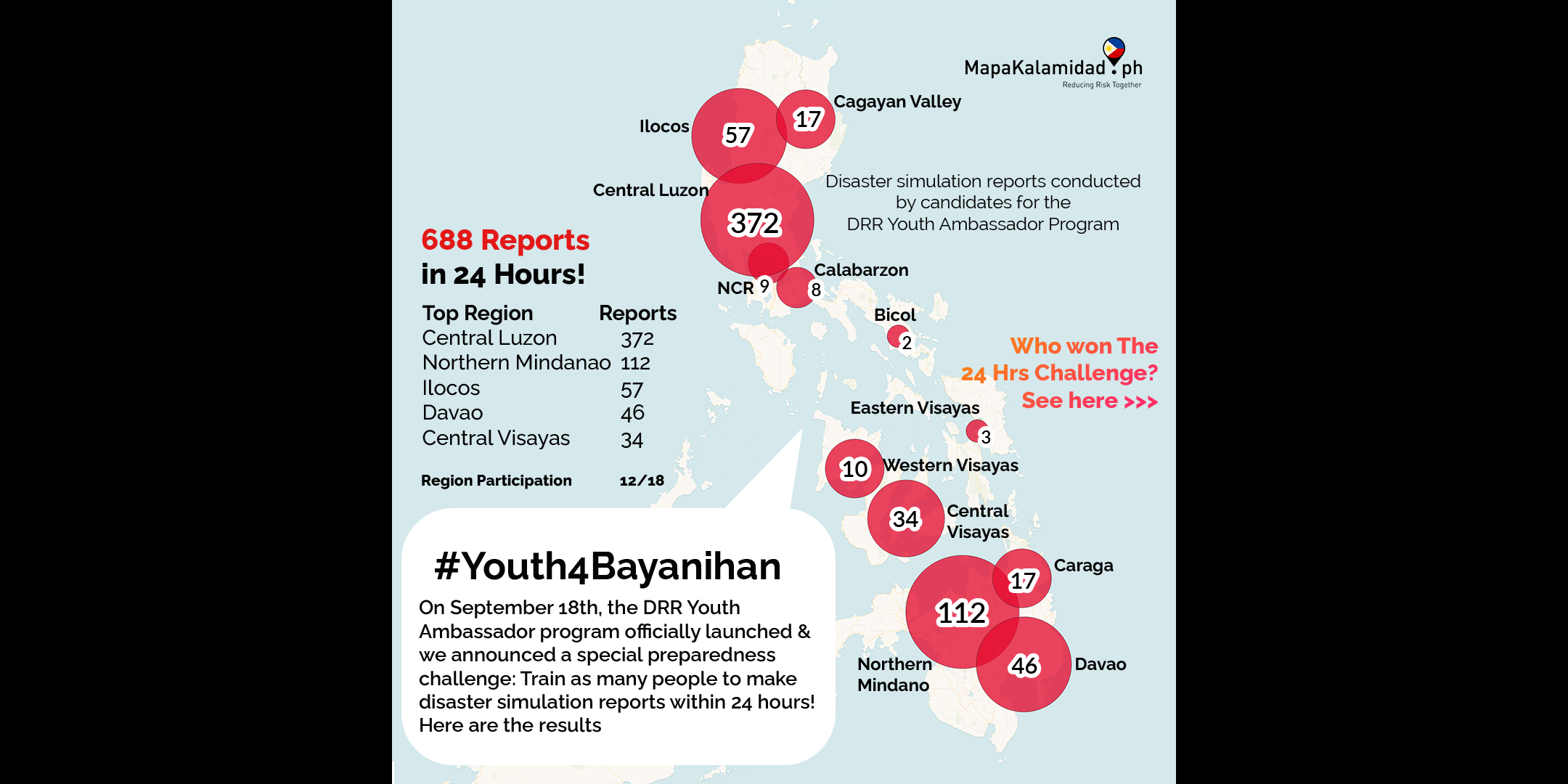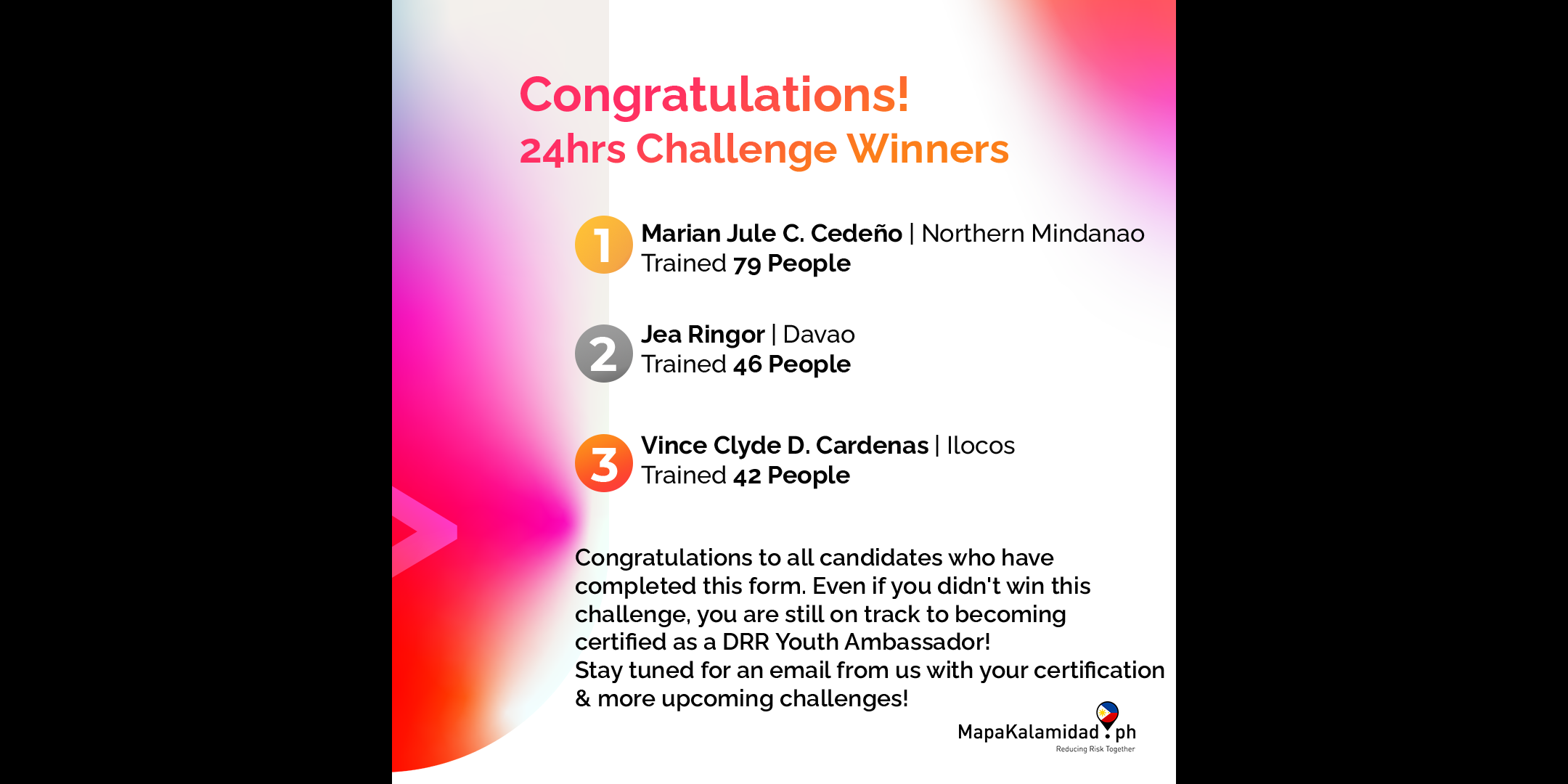Yayasan Peta Bencana, supported by USAID BHA and endorsed by Indonesian National Board for Disaster Management (BNPB) and the Office of Civil Defense (OCD), officially launched a regional disaster risk reduction youth program for Indonesia and the Philippines. As more frequently occurring extreme weather events continue to strike both countries, young leaders expressed their solidarity and commitment to reducing risk with the hashtags #Youth4GotongRoyong and #Youth4Bayanihan. The launch was opened by Dr. Raditya Jati, Deputy of Systems and Strategy of BNPB, Usec Ricardo B. Jalad, Executive director of the National Disaster Risk Reduction and Management Council (NDRRMC) and administrator of the OCD, and Mr. Harlan Hale, Regional Advisor of USAID BHA, who welcomed hundreds of youth and over 60 community organizations attending the online opening.
Led by the conviction that mitigating disaster risk must involve all residents, the youth ambassador program commits to amplifying the agency of young people all across the region so that they can equally participate in disaster recovery efforts and make informed and safe decisions for themselves and their communities during emergencies. Half of the world’s population are youth under the age of 30, and they are often the first and most affected when weather related disasters strike. According to the 2020 World Disasters Report, Indonesia and the Philippines are among the most vulnerable to weather related disasters and it is inevitable that the countries will continue to experience an increase in extreme weather. To cope with the increasing frequency and severity of weather-related events, experts emphasize the necessity to focus efforts on adaptation; minimizing exposure and vulnerability by increasing capacities for residents to respond to shocks, which must necessarily include the most vulnerable groups.
Nashin Mahtani, Director of Yayasan Peta Bencana, said: “In building the next generation of gotong royong and bayanihan, it is critical to empower youth leaders with the tools, agency, and support that will enable communities to self-organize, more equally participate in decision making during emergencies, and adapt to increasingly extreme weather events. By sharing real-time reports about disasters through PetaBencana.id and MapaKalamidad.ph, youth ambassadors will continue to help each other, neighbors, emergency agencies, and first responders better respond to emergency situations.”
PetaBencana.id (in Indonesia) and MapaKalamidad.ph (in the Philippines) are real-time disaster information sharing platforms run by Yayasan Peta Bencana. The online platforms harness the use of social media to crowdsource disaster information from residents on-the-ground, who often have the most up-to-date information. Moving far beyond passive data mining, the platforms deploy “humanitarian chatbots” to automatically respond to social media posts about disasters and ask users to confirm their situation by submitting a disaster report. These reports are used to map disasters in real-time on a freely accessible website, so that anyone can understand rapidly changing conditions during emergency events. Operational since 2013 in Indonesia and 2019 in the Philippines, the platforms provide transparent communication between residents and government agencies, and have been used by millions of resident users, emergency managers, and first responders to make time-critical decisions about safety and navigation during disasters.
“This is the best event to encourage youth participation in disaster risk reduction. Yayasan Peta Bencana’s DRR Youth Ambassador program is aligned with the vision of BNPB, and the 2045 vision of Indonesia. The nation’s resilience to disaster depends on building an effective and efficient disaster emergency system through participation of the young generation. As the leaders of today and tomorrow, we invite all youth to be part of this initiative.” said Dr. Raditya Jati, Deputy of Systems and Strategy of BNPB.
Usec. Ricardo Kalad from the Office of Civil Defense said, “Use this day’s launch as an avenue to help you work in your respective communities as DRR Youth Ambassadors and support the efforts to empower the youth, your loved ones, your neighbors, and our countrymen towards safety, adaptation and resilience in these times of the new normal. This goal is most crucial to the future of our people as we face the challenges that lie ahead. I trust that our youth is always up to the task.”
As part of the USAID CogniCity Open Source Software for Next Generation DRR Program, the DRR youth ambassador program will provide youth with the training and support to become “first reporters” with PetaBencana.id and MapaKalamidad.ph. As Indonesia’s youth are the most frequent and enthusiastic users of social media—spending an average of four hours a day just on social media—empowering them to use these same platforms to participate in disaster risk reduction will be transformational for coordination and recovery. Monthly campaigns, podcasts, and skill-building webinars with a variety of experts from government, business, academia, artists, scientists, and community groups will strengthen capacities for youth to become active leaders and drivers of transformation in their communities through a multi-dimensional, multi-sectoral, and multi-disciplinary approach.
Forecasts have alerted an increased chance of above-normal rainfall over much of the ASEAN region in the coming months, with Indonesia likely to experience 80% above normal rainfall as early as October. In preparation for the upcoming extreme weather the launch event kicked off with a 24-hour preparedness challenge, calling on all youth participants to train their neighbors and friends about actionable steps to reduce risk and disaster information sharing. In under 24 hours, youth trained 1529 people!




